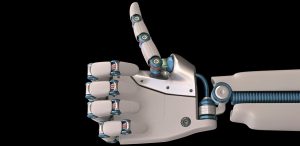The research project named RAILS (Roadmaps for AI integration in the raiL Sector) has been selected for EU funding by the Horizon 2020 Shift2Rail Joint Undertaking (call ID: S2R-OC-IPX-01-2019). The project will be in cooperation between Linnaeus University, Italian Interuniversity Consortium for Informatics (CINI), Delft University of Technology, University of Leeds, and will leverage on the input from big industry players like Hitachi Rail STS.
PROJECT ABSTRACT
The overall objective of the RAILS research project is to investigate the potential of Artificial Intelligence (A.I.) approaches in the rail sector and contribute to the definition of roadmaps for future research in next generation signalling systems, operational intelligence, and network management. RAILS will address the training of PhD students to support the research
capacity in A.I. within the rail sector across Europe by involving research institutions in four different countries with a combined background in both computer science and transportation systems. RAILS will produce knowledge, ground breaking research and experimental proof-of-concepts for the adoption of A.I. in rail automation, predictive maintenance and defect detection, traffic planning and capacity optimization. To that aim, RAILS will combine A.I. paradigms with the Internet of Things, in order to leverage on the big amount of data generated by smart sensors and applications. The research activities will be conducted in continuity with ongoing research in railways, but the methodological and technological concepts developed in RAILS are expected to stimulate further innovation providing new research directions to improve reliability, maintainability, safety, security, and performance. With respect to safety, emerging threats and certification issues will be addressed when adopting A.I. in autonomous and cooperative driving, based on the concepts of “explainable A.I.” and “Trustworthy AI”. With respect to cyber-physical threat detection, innovative approaches will be developed based on A.I. models like Artificial Neural Networks and Bayesian Networks together with multi-sensor data fusion and artificial vision. Resilience and optimization techniques based on genetic algorithms and self-healing will be addressed to face failures and service disruptions as well as to increase efficiency and line capacity. All those techniques will pave the way to the development of the new “Railway 4.0”.
RAILS_leaflet_final
LNU Project Page
CORDIS Page
RAILS Project Website


Recent Comments